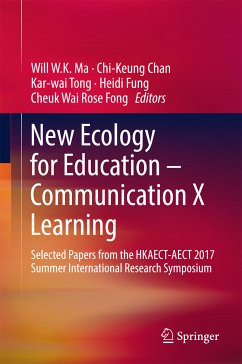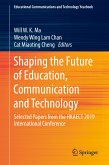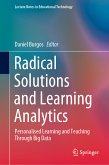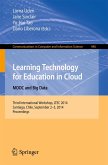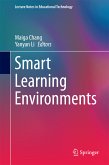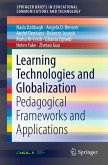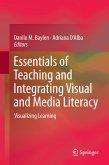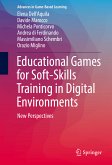New Ecology for Education - Communication X Learning (eBook, PDF)
Selected Papers from the HKAECT-AECT 2017 Summer International Research Symposium
Redaktion: Ma, Will W. K.; Fong, Cheuk Wai Rose; Fung, Heidi; Tong, Kar-Wai; Chan, Chi-Keung
113,95 €
113,95 €
inkl. MwSt.
Sofort per Download lieferbar

57 °P sammeln
113,95 €
Als Download kaufen

113,95 €
inkl. MwSt.
Sofort per Download lieferbar

57 °P sammeln
Jetzt verschenken
Alle Infos zum eBook verschenken
113,95 €
inkl. MwSt.
Sofort per Download lieferbar
Alle Infos zum eBook verschenken

57 °P sammeln
New Ecology for Education - Communication X Learning (eBook, PDF)
Selected Papers from the HKAECT-AECT 2017 Summer International Research Symposium
Redaktion: Ma, Will W. K.; Fong, Cheuk Wai Rose; Fung, Heidi; Tong, Kar-Wai; Chan, Chi-Keung
- Format: PDF
- Merkliste
- Auf die Merkliste
- Bewerten Bewerten
- Teilen
- Produkt teilen
- Produkterinnerung
- Produkterinnerung

Bitte loggen Sie sich zunächst in Ihr Kundenkonto ein oder registrieren Sie sich bei
bücher.de, um das eBook-Abo tolino select nutzen zu können.
Hier können Sie sich einloggen
Hier können Sie sich einloggen
Sie sind bereits eingeloggt. Klicken Sie auf 2. tolino select Abo, um fortzufahren.

Bitte loggen Sie sich zunächst in Ihr Kundenkonto ein oder registrieren Sie sich bei bücher.de, um das eBook-Abo tolino select nutzen zu können.
This book gathers the best papers from the HKAECT-AECT 2017 Summer International Research Symposium. Revealing the complex interactions between communication and learning, which are represented by the symbol "X" in the title, it provides a platform for knowledge exchange on the new ecology for education in the digital era. It also equips readers to handle complex issues in both communication and education, and clarifies the difference between practitioners and academics in communication and in education.
- Geräte: PC
- ohne Kopierschutz
- eBook Hilfe
- Größe: 6.21MB
Andere Kunden interessierten sich auch für
![Shaping the Future of Education, Communication and Technology (eBook, PDF) Shaping the Future of Education, Communication and Technology (eBook, PDF)]() Shaping the Future of Education, Communication and Technology (eBook, PDF)113,95 €
Shaping the Future of Education, Communication and Technology (eBook, PDF)113,95 €![Radical Solutions and Learning Analytics (eBook, PDF) Radical Solutions and Learning Analytics (eBook, PDF)]() Radical Solutions and Learning Analytics (eBook, PDF)73,95 €
Radical Solutions and Learning Analytics (eBook, PDF)73,95 €![Learning Technology for Education in Cloud - MOOC and Big Data (eBook, PDF) Learning Technology for Education in Cloud - MOOC and Big Data (eBook, PDF)]() Learning Technology for Education in Cloud - MOOC and Big Data (eBook, PDF)40,95 €
Learning Technology for Education in Cloud - MOOC and Big Data (eBook, PDF)40,95 €![Smart Learning Environments (eBook, PDF) Smart Learning Environments (eBook, PDF)]() Smart Learning Environments (eBook, PDF)73,95 €
Smart Learning Environments (eBook, PDF)73,95 €![Learning Technologies and Globalization (eBook, PDF) Learning Technologies and Globalization (eBook, PDF)]() Nada DabbaghLearning Technologies and Globalization (eBook, PDF)40,95 €
Nada DabbaghLearning Technologies and Globalization (eBook, PDF)40,95 €![Essentials of Teaching and Integrating Visual and Media Literacy (eBook, PDF) Essentials of Teaching and Integrating Visual and Media Literacy (eBook, PDF)]() Essentials of Teaching and Integrating Visual and Media Literacy (eBook, PDF)97,95 €
Essentials of Teaching and Integrating Visual and Media Literacy (eBook, PDF)97,95 €![Educational Games for Soft-Skills Training in Digital Environments (eBook, PDF) Educational Games for Soft-Skills Training in Digital Environments (eBook, PDF)]() Elena Dell'AquilaEducational Games for Soft-Skills Training in Digital Environments (eBook, PDF)89,95 €
Elena Dell'AquilaEducational Games for Soft-Skills Training in Digital Environments (eBook, PDF)89,95 €-
-
-
This book gathers the best papers from the HKAECT-AECT 2017 Summer International Research Symposium. Revealing the complex interactions between communication and learning, which are represented by the symbol "X" in the title, it provides a platform for knowledge exchange on the new ecology for education in the digital era. It also equips readers to handle complex issues in both communication and education, and clarifies the difference between practitioners and academics in communication and in education.
Hinweis: Dieser Artikel kann nur an eine deutsche Lieferadresse ausgeliefert werden.
Dieser Download kann aus rechtlichen Gründen nur mit Rechnungsadresse in A, B, BG, CY, CZ, D, DK, EW, E, FIN, F, GR, HR, H, IRL, I, LT, L, LR, M, NL, PL, P, R, S, SLO, SK ausgeliefert werden.
Hinweis: Dieser Artikel kann nur an eine deutsche Lieferadresse ausgeliefert werden.
Produktdetails
- Produktdetails
- Verlag: Springer Nature Singapore
- Seitenzahl: 295
- Erscheinungstermin: 18. Mai 2017
- Englisch
- ISBN-13: 9789811043468
- Artikelnr.: 53058453
- Verlag: Springer Nature Singapore
- Seitenzahl: 295
- Erscheinungstermin: 18. Mai 2017
- Englisch
- ISBN-13: 9789811043468
- Artikelnr.: 53058453
- Herstellerkennzeichnung Die Herstellerinformationen sind derzeit nicht verfügbar.
Ma, Wai-Kit Will received his PhD at the University of Hong Kong. He is currently an Associate Professor at the Department of Journalism and Communication, Hong Kong Shue Yan University. Dr. Ma's research focuses on the use of information systems for communication, knowledge sharing and knowledge creation. He is the President of the HKAECT and served as Co-editor of the Journal of Communication and Education. CHAN, Chi-Keung (Alex) earned his master and doctoral degrees in Educational Psychology at the University of Minnesota - Twin Cities. Alex is currently an Assistant Professor at the Department of Counselling and Psychology, Hong Kong Shue Yan University. He is also the Vice-President of the HKAECT. His research interests include cyber risky behaviors and positive technology. TONG, Kar-wai is the Secretary of the HKAECT. Dr. Tong holds a degree of Doctor of Juridical Science and serves as an editor for various international journals. He is also a book co-editor.His research interests include happiness, Confucianism, human rights, medico-legal liabilities, and legal issues in education. FUNG, Heidi is the Treasurer of the HKAECT and an Assistant Professor at the Department of Accounting, Hong Kong Shue Yan University. Heidi received her MSc (ITE) at the University of Hong Kong and her MBA at the University of Melbourne, Australia. Her research interests include educational technology, blended learning in higher education, and generic skills development. FONG, Cheuk Wai Rose earned her doctoral degree in Education at Durham University, UK. She is currently a senior lecturer and the Director of Student Services at the Community College of City University (CCCU) and the Public Relations Officer of the HKAECT. Rose's research interests include education technology, human-computer interaction, and thinking skills in self-reflection and creativity.
Part I: Keynote.- Chapter 1. A New Ecology for Education: Refocusing Educational Technology beyond Content.- Part II: New Trends in Educational Technology.- Chapter 1. Are Social Media Alternatives to Learning Management Systems when Teaching Online?.- Chapter 2. MOOCs in China: A Research Review, 2012-2016.- Chapter 3. The Acceptance of Using Social Mobile Application for Learning in Hong Kong's Higher Education.- Chapter 4. Theoretical Frameworks and Research Methods in the Study of MOOC/E-learning Behaviors: A Theoretical and Empirical Review.- Chapter 5. New Technologies and Old Professional Development: A Reflection on Emerging Approaches.- Part III: Teaching and Learning Experiences with Technology.- Chapter 1. Assessment of Student Learning Achievement in Regression Tasks.- Chapter 2. Digital Design - an Academic E-reader.- Chapter 3. Identifying the Needs of Flexible and Technology Enhanced Learning in Vocational and Professional Education and Training's (VPET) Workplaces.- Chapter 4. Factors Affecting EFL Teachers in Chinese Universities to Teach with Technology: A Case Study.- Chapter 5. Emotional Design and Prior knowledge in Developing Problem Solving Skills.- Chapter 6. Implementing Digital Game Mechanics and Various Video Lecture Formats in a Flipped Research Method Course: What Postgraduate Learners Say?.- Chapter 7. Multitasking with ICT among University Students: An Exploratory Study.- Chapter 8. Examining the Information Literacy Life Cycle among Macau .- Chapter 9. University Students: Psychometric Evidence of the UNESCO-ILL.- Chapter 10. ICT Use at Home of Hong Kong Students: Understanding New Arrival Children from Mainland China. Part IV: Communication and the Media.- Chapter 1. Conflictual Journalistic Creativity: When Journalists Being Caught in Inconsistent Media Professionalism and Inconsistent Political Ideology.- Chapter 2. Emoticons and Emotions: Exploring the Roles of Emoticons in Emotional Representativeness, Awareness and Management.- Chapter 3. Exploring Cultural Differences on Presentation Style of Newspaper Organization Facebook Page.- Chapter 4. Facebook Use and Well-being in Chinese College Students.- Chapter 5. Exploring the Relationships among Peer Influence, Media Influence, Self-esteem, and Body Image Perception.- Chapter 6. The Roles of Information Seeking and Information Evaluation for Decision Making Behaviors.- Chapter 7. Sharing Data and Knowledge: Exploring Relationships and Difference among Day, Time, Gender, Place and Smartphone Use.- Chapter 8. Internet Plagiarism at the Fingertips? Legal Warning to Professionals and Future Professionals.
Part I: Keynote.- Chapter 1. A New Ecology for Education: Refocusing Educational Technology beyond Content.- Part II: New Trends in Educational Technology.- Chapter 1. Are Social Media Alternatives to Learning Management Systems when Teaching Online?.- Chapter 2. MOOCs in China: A Research Review, 2012-2016.- Chapter 3. The Acceptance of Using Social Mobile Application for Learning in Hong Kong's Higher Education.- Chapter 4. Theoretical Frameworks and Research Methods in the Study of MOOC/E-learning Behaviors: A Theoretical and Empirical Review.- Chapter 5. New Technologies and Old Professional Development: A Reflection on Emerging Approaches.- Part III: Teaching and Learning Experiences with Technology.- Chapter 1. Assessment of Student Learning Achievement in Regression Tasks.- Chapter 2. Digital Design - an Academic E-reader.- Chapter 3. Identifying the Needs of Flexible and Technology Enhanced Learning in Vocational and Professional Education and Training's (VPET) Workplaces.- Chapter 4. Factors Affecting EFL Teachers in Chinese Universities to Teach with Technology: A Case Study.- Chapter 5. Emotional Design and Prior knowledge in Developing Problem Solving Skills.- Chapter 6. Implementing Digital Game Mechanics and Various Video Lecture Formats in a Flipped Research Method Course: What Postgraduate Learners Say?.- Chapter 7. Multitasking with ICT among University Students: An Exploratory Study.- Chapter 8. Examining the Information Literacy Life Cycle among Macau .- Chapter 9. University Students: Psychometric Evidence of the UNESCO-ILL.- Chapter 10. ICT Use at Home of Hong Kong Students: Understanding New Arrival Children from Mainland China. Part IV: Communication and the Media.- Chapter 1. Conflictual Journalistic Creativity: When Journalists Being Caught in Inconsistent Media Professionalism and Inconsistent Political Ideology.- Chapter 2. Emoticons and Emotions: Exploring the Roles of Emoticons in Emotional Representativeness, Awareness and Management.- Chapter 3. Exploring Cultural Differences on Presentation Style of Newspaper Organization Facebook Page.- Chapter 4. Facebook Use and Well-being in Chinese College Students.- Chapter 5. Exploring the Relationships among Peer Influence, Media Influence, Self-esteem, and Body Image Perception.- Chapter 6. The Roles of Information Seeking and Information Evaluation for Decision Making Behaviors.- Chapter 7. Sharing Data and Knowledge: Exploring Relationships and Difference among Day, Time, Gender, Place and Smartphone Use.- Chapter 8. Internet Plagiarism at the Fingertips? Legal Warning to Professionals and Future Professionals.
